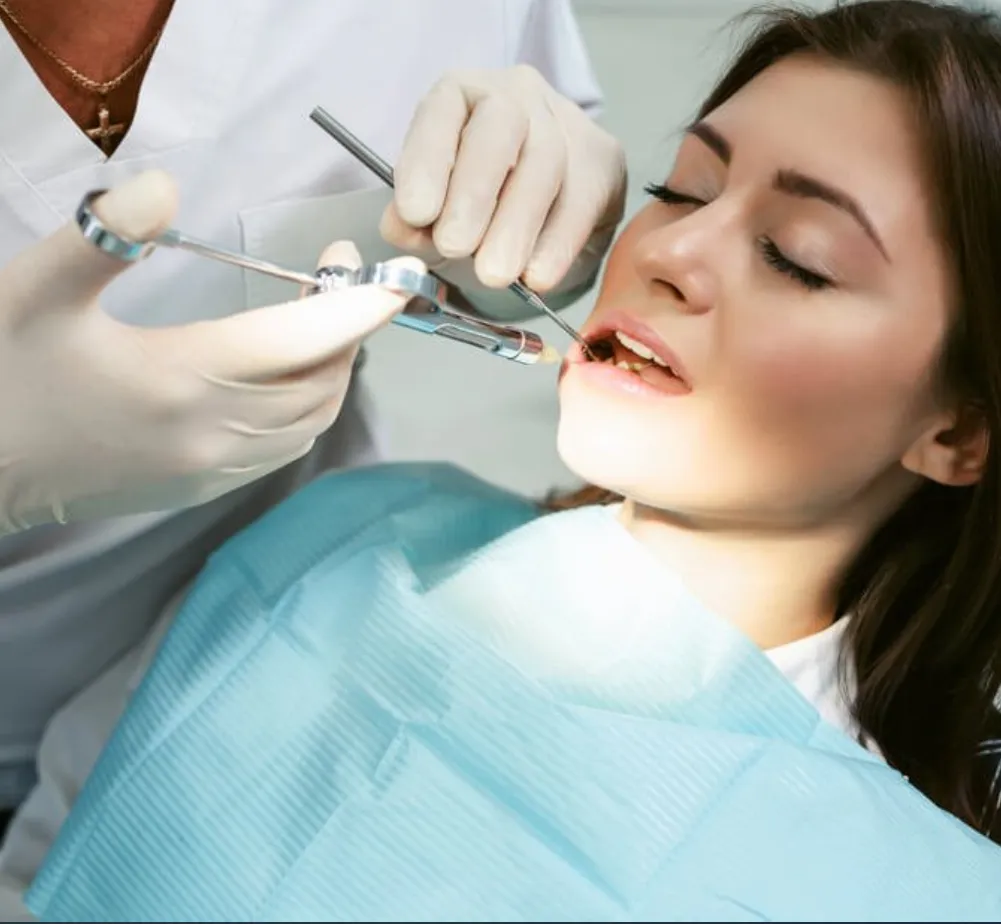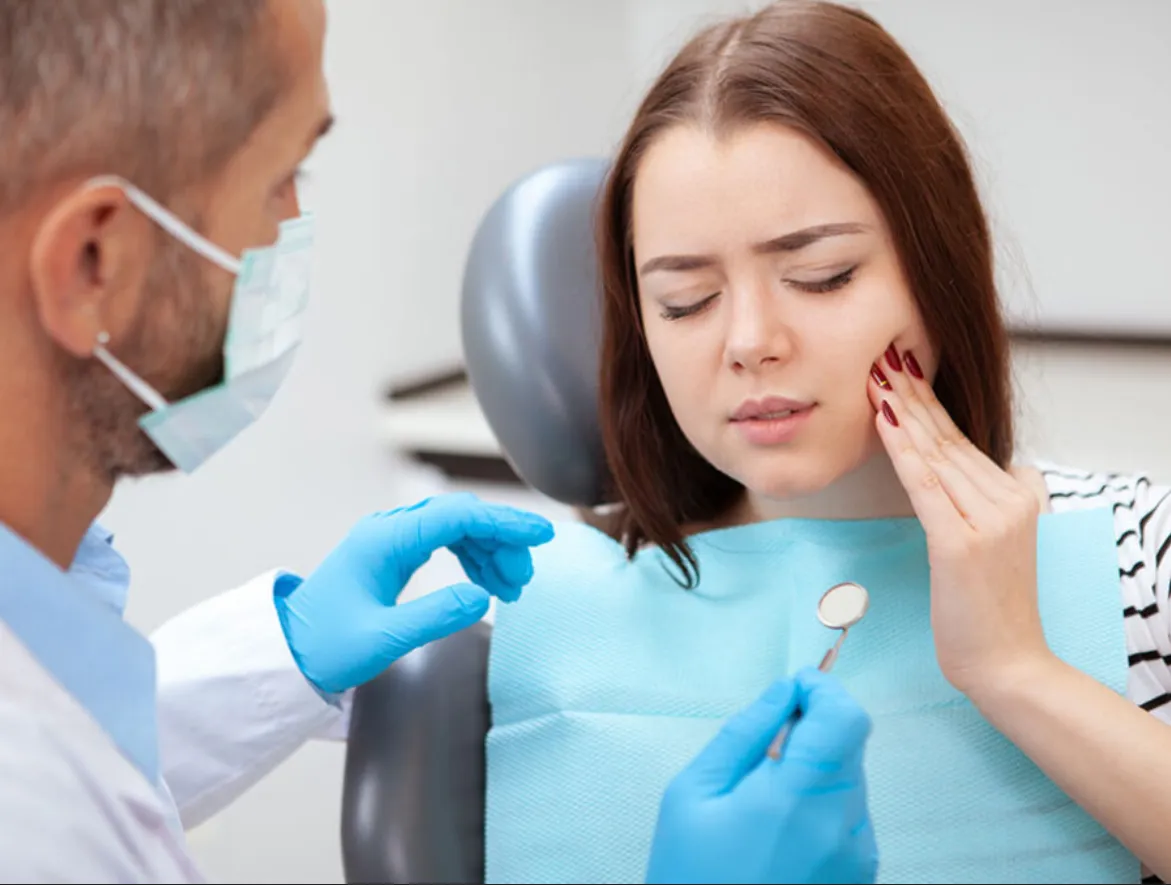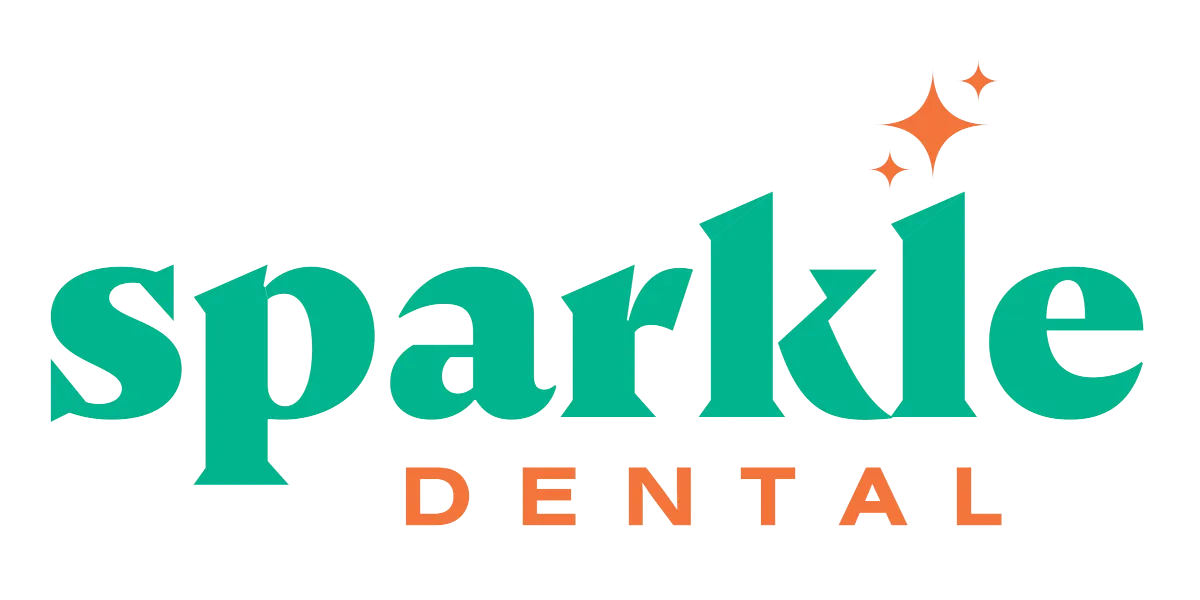TMJ (Jaw Joint Pain)
Explore TMJ Solutions
Explore TMJ Solutions
Get in touch with us todaY (807) 789-9848

Visit a TMJ specialist to explore effective treatments for TMJ disorder. These treatments come in various forms, addressing discomfort and aiming to improve jaw function. They focus on long term relief and a path to renewed comfort. Maintenance is minimal, and the process often includes customized therapies, exercises, and sometimes oral appliances, ensuring a comprehensive approach to your well-being. TMJ treatment for botox is also available.

The TMJ is the Temporal Mandibular Joint, the joint that connects the lower jaw to your upper jaw and skull. It is a complex joint and unique joint in the body because of the many types of motion it has.
There are many muscles and ligaments that move the joint every time we talk, eat or swallow.
When the jaw joint or associated muscles and ligaments become painful, the condition is known as TMD or Temporal Mandibular Joint Dysfunction.
Treatments For TMJ Disorders
Common treatments include lifestyle changes and self-care, physical therapy and exercises, and the use of oral appliances, with each approach tailored to individual needs.
Lifestyle Changes
Lifestyle changes and self-care for TMJ disorders involve modifying habits, reducing stress, and incorporating jaw-friendly practices to alleviate symptoms and promote jaw health.
Physical Therapy
Physical therapy and exercises focus on improving jaw mobility, strengthening surrounding muscles, and relieving tension, providing effective relief and better jaw function.
Use Of Oral Appliances
Oral appliances are commonly used in treatment and help reposition the jaw, reduce grinding or clenching, and alleviate discomfort, all promoting improved jaw function and overall comfort.

Treatments For TMJ Disorders
Common treatments include lifestyle changes and self-care, physical therapy and exercises, and the use of oral appliances, with each approach tailored to individual needs.
Lifestyle Changes
Lifestyle changes and self-care for TMJ disorders involve modifying habits, reducing stress, and incorporating jaw-friendly practices to alleviate symptoms and promote jaw health.
Physical Therapy
Physical therapy and exercises focus on improving jaw mobility, strengthening surrounding muscles, and relieving tension, providing effective relief and better jaw function.
Use Of Oral Appliances
Oral appliances are commonly used in treatment and help reposition the jaw, reduce grinding or clenching, and alleviate discomfort, all promoting improved jaw function and overall comfort.
Most Common Reasons To Choose TMJ Disorder Treatment
A TMJ Specialist offers treatment that focuses on providing some relief from pain and discomfort, improving jaw function, and enhancing overall quality of life.
Can Reduce Pain
Selecting this treatment can offer significant relief from persistent pain and discomfort, helping individuals regain their comfort and quality of life.
Improve Jaw Function
Treatment for TMJ disorder can lead to improved jaw function, alleviating limitations and promoting better overall oral health and well-being.
Boost Overall Life Enjoyment
This treatment has the potential to enhance overall quality of life by reducing or relieving discomfort, improving jaw function, and restoring a sense of well-being and comfort.

Most Common Reasons To Choose TMJ Disorder Treatment
A TMJ Specialist offers treatment that focuses on providing some relief from pain and discomfort, improving jaw function, and enhancing overall quality of life.
Can Reduce Pain
Selecting this treatment can offer significant relief from persistent pain and discomfort, helping individuals regain their comfort and quality of life.
Improve Jaw Function
Treatment for TMJ disorder can lead to improved jaw function, alleviating limitations and promoting better overall oral health and well-being.
Boost Overall Life Enjoyment
This treatment has the potential to enhance overall quality of life by reducing or relieving discomfort, improving jaw function, and restoring a sense of well-being and comfort.
Treatment Longevity And Maintenance
Varied Outcomes In TMJ Therapy
The durability of treatment varies depending on the individual's condition and the chosen treatment approach. Some may experience long-term relief, while others may require ongoing management to maintain results.
TMJ Disorder Maintenance Strategies
Maintaining TMJ disorder treatment involves regular follow-ups with healthcare providers, adherence to recommended exercises, wearing prescribed oral appliances, managing stress, and adopting a jaw-friendly diet to prevent relapses and ensure lasting relief.

Treatment Longevity And Maintenance
Varied Outcomes In TMJ Therapy
The durability of treatment varies depending on the individual's condition and the chosen treatment approach. Some may experience long-term relief, while others may require ongoing management to maintain results.
TMJ Disorder Maintenance Strategies
Maintaining TMJ disorder treatment involves regular follow-ups with healthcare providers, adherence to recommended exercises, wearing prescribed oral appliances, managing stress, and adopting a jaw-friendly diet to prevent relapses and ensure lasting relief.
Stages Of TMJ Treatment
Initially, patients undergo diagnosis and assessment,following this, treatment typically begins with conservative approaches such as lifestyle modifications, exercises, and pain management techniques.
In cases of persistent or severe symptoms, more advanced interventions like dental appliances or, rarely, surgery may be considered.
Initial Diagnosis
The initial stage of treatment involves a diagnostic process, including clinical evaluations, imaging studies, and bite analysis, to pinpoint causative factors and assess condition severity accurately.
Lifestyle Modifications
In this stage, patients embrace conservative measures such as personalized exercise regimens, ergonomic adjustments, dietary modifications, and targeted pain management strategies to alleviate TMJ symptoms and enhance jaw function.
Advanced Treatment Options
The third stage encompasses advanced interventions, like precision-crafted dental appliances or, in exceptional instances, surgical procedures, reserved for severe and unresponsive TMJ cases, aiming to restore comfort and optimize jaw function.

Stages Of TMJ Treatment
Initially, patients undergo diagnosis and assessment,following this, treatment typically begins with conservative approaches such as lifestyle modifications, exercises, and pain management techniques.
In cases of persistent or severe symptoms, more advanced interventions like dental appliances or, rarely, surgery may be considered.
Initial Diagnosis
The initial stage of treatment involves a diagnostic process, including clinical evaluations, imaging studies, and bite analysis, to pinpoint causative factors and assess condition severity accurately.
Lifestyle Modifications
In this stage, patients embrace conservative measures such as personalized exercise regimens, ergonomic adjustments, dietary modifications, and targeted pain management strategies to alleviate TMJ symptoms and enhance jaw function.
Advanced Treatment Options
The third stage encompasses advanced interventions, like precision-crafted dental appliances or, in exceptional instances, surgical procedures, reserved for severe and unresponsive TMJ cases, aiming to restore comfort and optimize jaw function.
Call Us Today. New Patients Are Welcome
If you are in the Thunder Bay area and in need of TMJ disorder treatment, our team offers personalized care and help designed to address your specific needs.
If you're seeking a TMJ specialist in Thunder Bay, reach out to Sparkle Dental for personalized guidance on your journey for help to relieve and improve jaw function.

Call Us Today. New Patients Are Welcome
If you are in the Thunder Bay area and in need of TMJ disorder treatment, our team offers personalized care and help designed to address your specific needs.
If you're seeking a TMJ specialist in Thunder Bay, reach out to Sparkle Dental for personalized guidance on your journey for help to relieve and improve jaw function.

550 Arthur St W, Thunder Bay, ON, P7E 5R7

